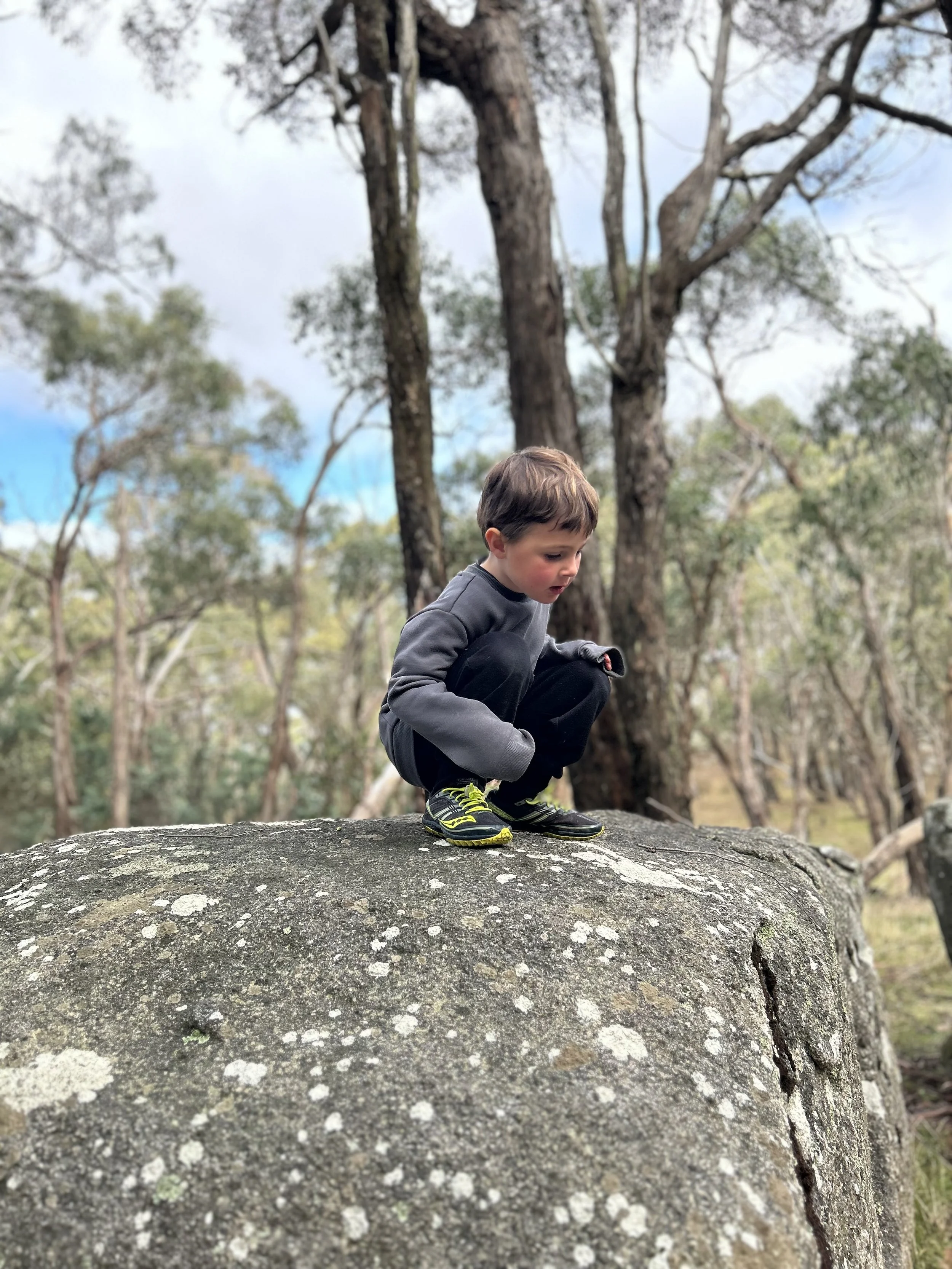The Eco Ranges Bush Playgroup
Bush playgroups offer a refreshing alternative to screen-dom inated, indoor activities by immersing young children in natural outdoor settings like forests, parks, and reserves. These community-based gatherings, designed for children from birth to preschool age along with their parents or caregivers, promote unstructured, nature-based play. The philosophy behind bush playgroups is that nature itself is a powerful teacher, fostering physical, emotional, cognitive, and social growth.
In bush playgroups, children engage in diverse activities such as nature walks, collecting natural materials, building with sticks, digging, climbing, and observing wildlife. This child-led approach encourages exploration, curiosity, and learning at their own pace, developing independence and confidence. The natural environment not only enhances physical and cognitive skills but also promotes emotional well-being and social interactions.
Bush playgroups provide holistic early childhood development, nurturing environmentally conscious and resilient children while fostering a lifelong appreciation for nature.
The Young Eco Rangers Bush Playgroup (1-3 years)
Program Overview: The Young Eco Rangers focuses on free play and nature-based learning experiences. The program encourages creativity, collaboration, and the development of new skills through hands-on activities in a natural setting.
Objectives:
Promote free play and creativity in nature.
Support social skills development through group activities.
Encourage exploration and learning about the natural world.
Activities:
Free Play: Unstructured time where children can explore the natural environment, use their imagination, and engage in physical play.
Nature-Based Art and Craft: Creating art using natural materials like leaves, sticks, and stones.
Bush Learning Experiences: Includes bird watching, identifying animal tracks, and learning about different plants and trees.
Nature Scavenger Hunts: Fun, educational hunts that help children learn to observe and categorise natural objects.
Group Activities: Games and tasks that promote teamwork, collaboration, and skill-building.
The Adventure Eco Rangers Playgroup (3 - 6 years )
Program Overview: Adventure Eco Rangers is designed to challenge children with more adventurous and risky play while preparing them for the transition from kindergarten to school. The focus is on building confidence, physical coordination, and social skills through nature-based activities.
Objectives:
Encourage adventurous and risky play to build resilience and confidence.
Support school readiness through group work and skill development.
Enhance social and emotional skills through collaborative activities.
Activities:
Free and Risky Play: Activities that allow children to climb, balance, and take calculated risks in a safe environment, fostering physical development and confidence.
Nature Exploration: Deeper engagement with nature through activities like building shelters, navigating bush trails, and identifying flora and fauna.
School Readiness Group Work: Activities that simulate school environments, such as group discussions, problem-solving tasks, and following instructions.
Adventure Challenges: Tasks that promote teamwork, such as building a group project or completing a nature trail challenge.
Why is Adventure and Risky Play Important?
1. Developing Physical Skills: Risky play helps children develop their gross and fine motor skills, coordination, and balance. Climbing, jumping, and running enhance their physical capabilities and overall fitness.
2. Building Resilience and Confidence: Taking risks allows children to experience success and failure in a controlled environment. This builds resilience, self-confidence, and a sense of accomplishment as they learn to manage challenges and overcome obstacles.
3. Enhancing Risk Assessment and Decision-Making: Through risky play, children learn to assess risks, make decisions, and understand the consequences of their actions. This skill is crucial for their safety and independence as they grow.
4. Fostering Creativity and Problem-Solving: Risky play encourages creativity and innovation as children find solutions to navigate challenges. They learn to think critically and adapt to new situations.
5. Promoting Emotional Regulation: Engaging in risky play allows children to experience and manage a range of emotions, such as fear, excitement, and frustration. This helps them develop emotional regulation and coping strategies.
6. Social Skills Development: Risky play often involves interaction with peers, which helps children develop social skills such as negotiation, cooperation, and conflict resolution.
Bush Blog, information, and additional Resources













